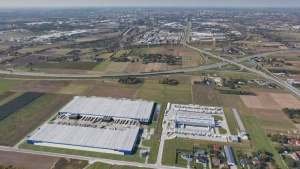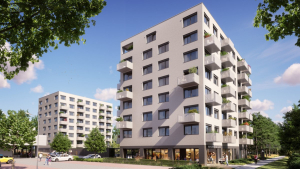
2017 was an exceptional year for Romania, but the market looks a bit stagnant right now. Răzvan Gheorghiu-Testa FRICS, Partner and Head of the Real Estate Practice Group at Ţuca Zbârcea & Asociaţii talked to Property Forum about market dynamics, legal challenges and the impacts of technology.
Răzvan Gheorghiu-Testa will chair the Romanian panel at the upcoming CEE Property Forum 2018 in Vienna on 20 September.
The Romanian property market has performed well in recent years. Has this boom translated into increased demand for legal services?
The market performed indeed well during the past couple of years, but this does not necessarily mean it was booming. 2017 was an exceptional year, but right now the market looks a bit stagnant. A number of high profile transactions were closed before the summer break (primarily on the office market), some deals are now ongoing, but overall the market moves at a slower pace than originally forecasted. More transactions naturally translate into increased demand for legal services and the law firms who have a history of working with the key market players have been doing well, especially in the context where the market is still driven by traditional investors and, to a lesser extent, by newcomers.

Răzvan Gheorghiu-Testa
Partner and Head of the Real Estate Practice Group
Ţuca Zbârcea & Asociaţii
What do clients need these days? Have their expectations changed compared to periods of less dynamic market activity?
The face of the legal services market is constantly changing and we have to keep the pace with the increased use of technology. Innovation, tailor-made services and flexible fee arrangements are key factors in order to attract or maintain clients. As always, clients seek excellence in legal services and responsiveness and most of them are asking law firms to deliver better value for money. If you are constantly available, meet the agreed deadlines and deliver quality work for reasonable fees you cannot miss clients’ expectations.
Romania has been known for its lengthy and difficult permitting process. Has the country become a more attractive destination from a developer’s point of view in recent years?
Unfortunately, this is still wishful thinking. The permitting process continues to be burdensome and the duration is quite often unpredictable - you know when you start but never know when you finish. On top this, there are a number of issues/delays derived from the non-uniform application of the regulations by the relevant authorities and there might always be an unhappy neighbour that would challenge the building permit and suspend the construction works (not always on solid ground). The construction law was amended with a view to improving the entire permitting process, there is a new regulation governing the reception of construction works, but there is still plenty of place for improvement. On top of that, the elephant in the room remains the fire safety authorisation. It is fully justified that the authorities want to firmly control the permitting process and they do not have to be lenient, but most of the time the process is lengthy and outside the control of the investor.
What are the key issues developers still need to face when wanting to start a new project?
Irrespective of the market dynamic, there are certain mandatory prerequisite for any new development. Needless to say, any developer needs to secure a clean title over the land, and a thorough (and sometimes lengthy) legal due diligence investigation should be conducted, considering the restitution process of assets formerly confiscated by the communist regime in Romania. Equally important, the developer needs to review, understand and acknowledge the urban planning regime of the land to be developed, in order to get a clear picture of what can be built of that land, construction constraints and restrictions as well as forecasted costs and time of implementation. The results of the legal and technical due diligence would ultimately impact the financing of the project, the “cleaner” the title and the urban planning regime, the more attractive the project for a financing bank.
Has technology in any way impacted the way real estate transactions are handled?
Yes, definitely. Speed is of the essence in many transactions and immediate access to information available online (e.g. searches in the property registries) is really helpful. Also, there is an integrated informatic system organised at the level of the National Cadastre Administration which includes data regarding immovable assets and which allows real-time searches in the relevant database, so that investors could get first-hand information, which could prove useful in the early stages of a negotiation. The increased used of technology in office buildings and/or shopping malls (especially CCTV) requires investors to address new areas of concern, such as compliance of the target company with the personal data protection regulations.



